Development application approval times: Where Hornsby ranks against other Sydney councils
HORNSBY Mayor Philip Ruddock is putting up a green wall defence as he urges developers to deliver “appropriate” projects which stay true to the region’s heritage and unique character.
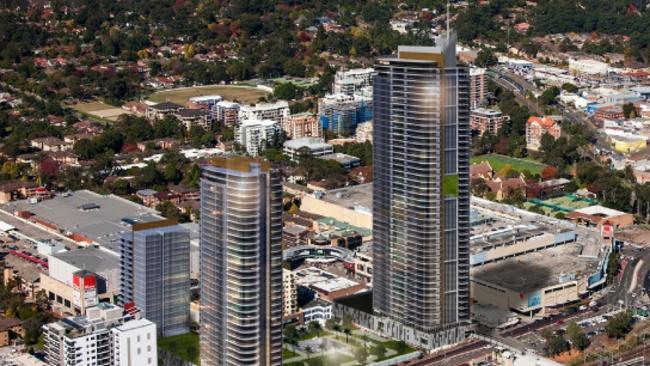
Hornsby
Don't miss out on the headlines from Hornsby. Followed categories will be added to My News.
HORNSBY Mayor Philip Ruddock is putting up a green wall defence as he urges small and large-scale developers to “forget cheap and nasty” and deliver “appropriate” projects which don’t turn the region into a concrete jungle.
Mr Ruddock sent the blunt message this week as new data reveals Hornsby Council is taking longer to process a growing number of development applications.
Hornsby Council took 65 days on average to determine DAs in 2017, 10 days slower than the previous year and a long way from tough new State Government benchmarks.
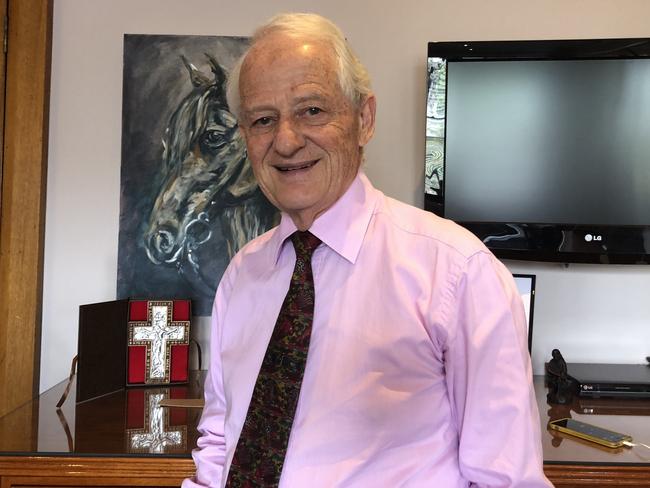
Premier Gladys Berejiklian has set a target of 90 per cent of housing approvals – which include new dwellings, dual occupancies and granny flats – to be determined within 40 days by 2019.
The council received 1185 DAs last year, compared to 964 the previous year, and raked in about $12 million from Section 94 developer contributions.
DA LEADERBOARD (average approval times)
1. Wollondilly (29 days)
2. Camden, Campbelltown, Hawkesbury (39 days)
3. Canterbury-Bankstown (42 days)
4. Northern Beaches, Randwick, Waverley (52 days)
5. North Sydney (57 days)
6. The Hills (62 days)
7. Bayside (64 days)
8. Hornsby (65 days)
9. Parramatta (76 days)
10. City of Sydney, Ku-ring-gai, Mosman (78 days)
11. Inner West, Penrith (79 days)
12. Blue Mountains (85 days)
13. Ryde (89 days)
14. Willoughby (90 days)
15. Woollahra (112 days)
16. Cumberland (125 days)
* Fairfield (25 days), Blacktown (39), Liverpool (47), Lane Cove (50)
Note: Council performance is based on the average number of days it took for approving DAs in 2016/17. * Fairfield, Blacktown, Liverpool and Lane Cove Council’s data is for 2015-16.
Mr Ruddock said he did not get complaints about significant delays in DA processing times.
“My view is that if you want to develop in a way which reflects the desires and aspirations of the global community, you’ll get quick decisions,” he said.
“If proposals are cheap and nasty, they will be questioned (by council staff). The more questions your applications invoke, sometimes the greater delays while they are looked at.”
The former Howard government minister said he was focused on “appropriate” development including a “total relook” at the Hornsby CBD.
“I say this to the bigger developers: give us the best type of development and think about what is going to improve the amenity of our area, in keeping with the bushland shire and its unique character, and you won’t have too much problems,” Mr Ruddock said.
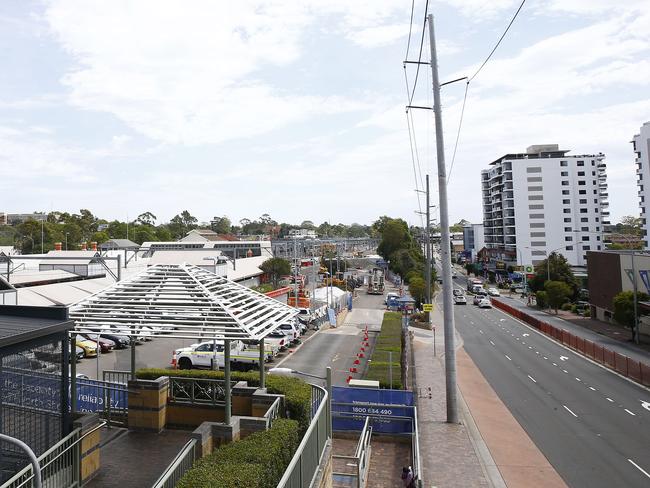
“Most of our focus is on looking at what we think is most appropriate … and how the railway land and commercial areas can be developed in a way to maintain commercial activity but also to focus on appropriate residential activity with open space and tree planting.
“I understand the need to get high-rise developments around critical infrastructure where people are able to access public transport. But if you’ve got to do developments of that sort, don’t do it in a pre-emptive way, do it in a way which is planned and enables the heritage to be maintained.”
The 74-year-old said Hornsby CBD would “come more into its own because an organisation like Westfields has to get more opportunities for local businesses and get employment opportunities”.
“They will want to see the sort of appropriate development I’m talking about,” he said.
“It will occur because of NorthConnex (due to open in late 2019), which will essentially make Hornsby CBD more accessible to local traffic movement.
“You’ll find the groups now clogging up our roads will be moved into the tunnel and we will have easier access to Hornsby town centre.
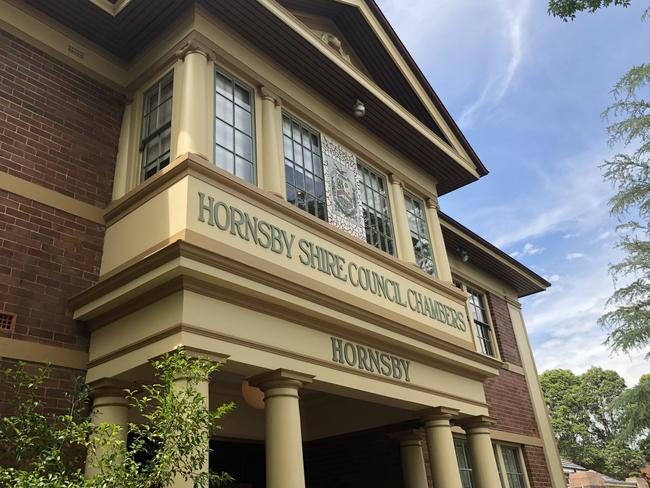
“It will make it a more attractive centre than Chatswood, Macquarie and Castle Hill, which up until now have been the major centres around the northwest.”
In the week the government’s new independent planning panels are rolled out across Sydney, shutting councillors out of making decisions of developments valued between $5 million and $30 million, Mr Ruddock said “only time will tell” whether local communities benefit from the overhaul.
‘CUT THE RED TAPE FOR MUM-AND-DAD DEVELOPERS’
A TOWN planner has called on councils to cut the red tape for mum-and-dad developers wanting to do home improvements ahead of his call-up to the State Government’s new Independent Hearing and Assessment Panel process.
John McFadden, who has provided independent town planning advice for the past two decades, said all councils should simplify the jargon and better communicate the development application system with ratepayers.
“Delays emerge well before a DA is prepared because there are now many different options to consider such as exempt development, complying development as well as other local development,” the managing director of Sydney-based State Planning Services said.
“Sometimes having too much choice can be counter-productive and more costly and the resulting outcome is that proponents will design their proposal accordingly with a corresponding capital investment value (CIV) to either deliberately subject a proposal to a particular consent authority or to avoid a consent authority altogether.”
Mr McFadden said this could “result in development that is contrary to improved planning outcomes”.

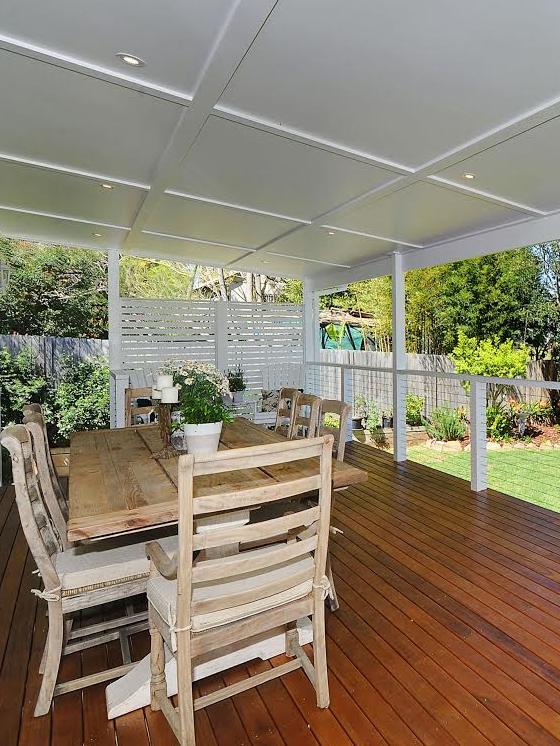
“Where site constraints such as heritage exist, non-DA options may not be available and this can lead to additional assessment and notification time frames.”
He urged councils to bring correspondence with residents into the 21st century.
“All councils across NSW should be consistent in accepting electronic lodgements instead of applicants in some LGAs having to print off half of the Daintree Rainforest with hard copies of documents,” he said.
The IHAPs, set up by the State Government to reduce the risk of corruption, will make determinations on DAs worth between $5 million and $30 million. Three of the four panel members will be appointed by the government (including the chair), while councils will select a community representative.
“Traditional local government politics is noticeably absent from these planning panels, which has the potential to result in less appeals to the NSW Land and Environment Court,” Mr McFadden said. “However, this can also restrict constituents from lobbying their elected representatives in order to refuse or approve a DA irrespective of the compliance or consistency of a proposal with adopted planning controls.”
Mr McFadden, one of 218 experts in a pool to sit on the new IHAPs which come into effect across Sydney and Wollongong on March 1, said most DAs — all those valued at less than $5 million — would still be determined by council staff.
“For this reason it is important that councils continue to simplify their systems for the mums and dads who just want a new patio,” he said.
A SIMPLE GUIDE TO DEVELOPMENT APPLICATIONS
Click here for the State Government’s ‘5 stages to faster, more efficient assessments’
Local government (council)
■ Minor, low-impact home, shop or business improvement projects, known as “exempt development” or “complying development”, don’t require planning or building approval. Other developments need consent and a form must be lodged with your local council, alongside a development application.
■ City planning officers determine the majority of DAs under delegated authority of council.
■ Across NSW, council staff currently make about 69 per cent of all DA and complying development certificate determinations. Councillors were making about two per cent of the DA decisions but from March 1 they will make none.
■ The fees for DAs are mandated under the Environmental Planning and Assessment Regulation 2000, and range from $110 for developments up to $5,000 to $15,875 for developments over $10 million (plus an extra $1.19 for each $1,000 or part of $1,000 by which the estimated cost exceeds $10 million).
■ Many NSW councils offer an online application tracking service.
■ Complaints about the general administrative conduct of councils, councillors and council staff can be made to the Office of Local Governmentor the NSW Ombudsman, while complaints about alleged corrupt conduct of councillors or council staff can be made to the Independent Commission Against Corruption (ICAC).
Independent Hearing and Assessment Panel
■ DAs with a dollar value of over $5 million but under $30 million to go before a mandatory Independent Hearing and Assessment Panel, known as an IHAP, from March 1.
■ IHAPS also deal with:
● DAs where the applicant or owner is the council, a councillor, councillor’s family member, council staff member, or a state or federal MP;
● DAs that get 10 or more objections;
● DAs accompanied by a voluntary planning agreement;
● DAs seeking to depart by more than 10 per cent from a development standard; and
● applications associated with a higher risk of corruption (that is, residential flat buildings assessed under SEPP 65 and demolition of heritage items).
■ All meetings are open to the public and will be recorded and made publicly available.
■ All IHAPs will have: a chair approved by the minister for planning with expertise in law or government and public administration (casting vote), two independent experts chosen by the local council from a pool approved by the minister, and one council-appointed community member who represents the council ward in which the development is to take place.
Sydney Planning Panels
■ Five independent Sydney Planning Panels make decisions about significant
development proposals in their region.
■ Currently, the projects they assess are valued over $20 million but from March 1 that threshold will be increased to $30 million.
■ The panels also act as the relevant planning authority in some decisions when directed by the Minister for Planning or the Greater Sydney Commission, undertake rezoning reviews, and provide advice on planning and development matters when requested.
■ New planning panel chairs are: Carl Scully (Sydney Eastern City Planning Panel), Justin Doyle (Sydney Western City Planning Panel), Professor Helen Lochhead (Sydney South Planning Panel), and Peter Debnam (Sydney North Planning Panel). The new chair of the Sydney Central Planning Panel is in the final stages of appointment.


